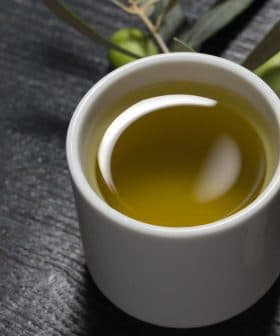How Olive Oil Can Help Fight India's Deadly Trend
Hydroxytyrosol's potential in preventing mercury-related cytotoxicity may make olive oil an excellent nutritional resource to help combat a growing health crisis in India, research shows.
The rising levels of mercury contamination in India are leading to a potential public health crisis, with reported increases in various diseases. Researchers recommend the inclusion of olive oil in the diet, specifically hydroxytyrosol, to mitigate the health risks associated with mercury exposure, as it has been shown to counteract mercury-induced toxicity and prevent oxidative damage.
The rising levels of mercury (Hg) contamination in India, through environmental, industrial, medical, and nutritional sources, are rapidly leading to what could become a major public health crisis in the country. The adverse effects are already evident in the reported increase in cancers, cardiovascular diseases, kidney ailments, neuronal disorders, psychiatric disorders, and vision impairment.
Researchers suggest that the dietary inclusion of phytochemicals, like those present in olive oil, may help mitigate these health concerns to a considerable degree. Virgin olive oil contains a number of phenolic antioxidants that have known health benefits, and one of these antioxidants, hydroxytyrosol (HT), has proven to be effective against Hg-induced toxicity.
See Also:Olive Oil Health Benefits
In general, once Hg is ingested, inhaled, or absorbed into the body, it may either be expelled naturally after a period of time, particularly if the poisoning sources are curbed, or it may accumulate within the cells. In the latter case, the Hg accumulation then begins to disrupt the cellular processes and brings about adverse morphological changes that can destroy the cellular structures and lead to long-term organ damage. The kidneys and the brain, especially in young children, are particularly vulnerable to mercury toxicity.
The use of HT in such cases is recommended since the phenolic phytochemical, along with being non-toxic and anti-inflammatory, is capable of diffusing through cell membranes and has metal-chelating properties that can counteract Hg-induced cytotoxicity.
Experiments carried out by Manna et al. show that HT significantly reduces the formation of reactive oxygen species (ROS) caused by Hg exposure. The research was published in the Journal of Nutrition & Food Sciences.
ROS are oxygen-based reactive molecules that, in high levels, can bring about apoptosis; that is, they can cause the cell to self-destruct. It is necessary for cell survival then to detox ROS and, to do this, the natural defense system releases antioxidants like glutathione. Continued Hg exposure can, however, deplete the glutathione levels and undermine the antioxidant defense. HT can prevent just this depletion and thereby allow glutathione to carry out its protective task.
Manna et al. also observed HT’s potential in preventing the formation of echinocytes. These are red blood cells (RBCs) that, with Hg exposure, form abnormal, uniformly placed spiny growths on the cell membranes. Echinocytes are pro-coagulant and can bring about Hg-induced rupturing known as hemolysis and lead to thrombotic disease. Increased echinocyte formation also raises the risk of cardiovascular damage.
Given the effectiveness of HT’s antioxidant properties, it is clearly an excellent nutritional resource for treating Hg-induced health problems. Using olive oil in the regular diet may, therefore, prove to be of immense benefit in India.

That said, the inclusion of olive oil in daily cooking may require more widespread health-based awareness than what exists already, since, generally, people tend to go with what they have always used and what doesn’t alter the taste or flavor that they are accustomed to.
The high price of olive oil, much of which is imported, also tends to put it out of reach of the section of population that it can most benefit. The cultivation of olives in Rajasthan and Himachal Pradesh and the production of olive oil in India may, hopefully, make it more accessible soon to the general public.









